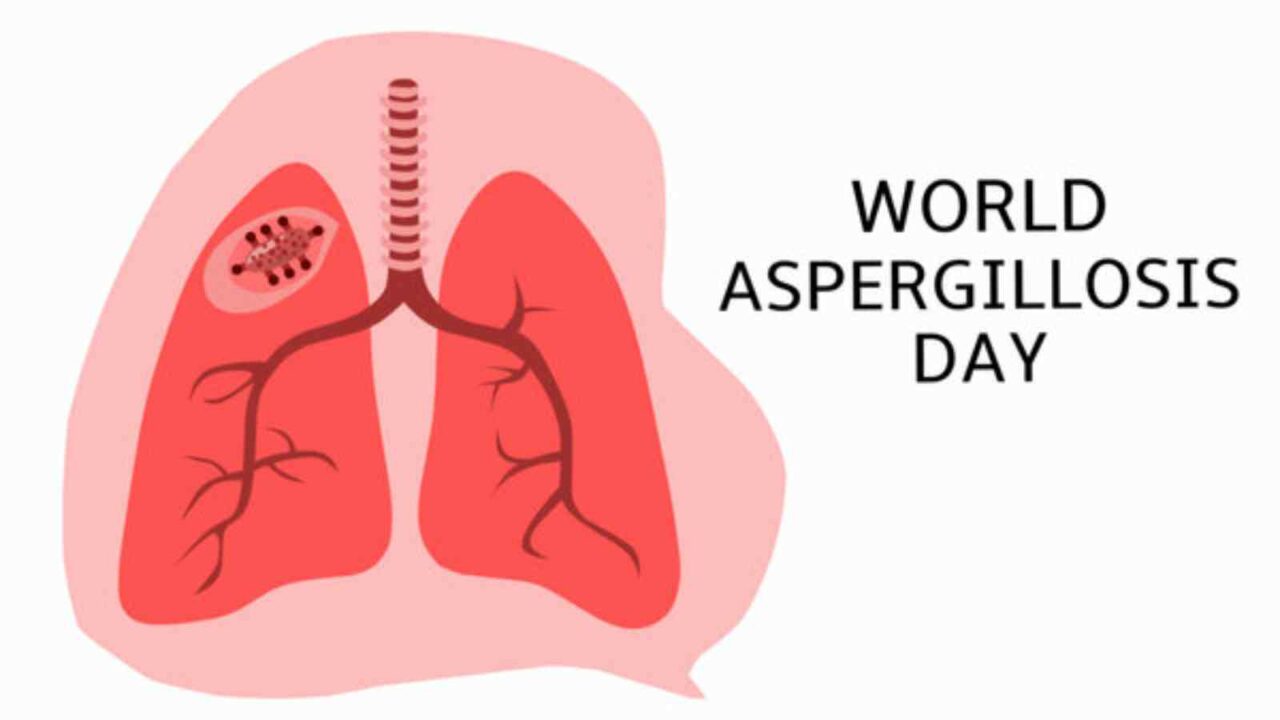Aspergillosis is a serious global health concern. On World Aspergillosis Day, we come together to raise awareness of this infection and how it affects people around the world. Aspergillosis occurs when a type of fungus called Aspergillus enters the body. This can happen through inhalation, contaminated food or drink, or even contact with soil or other materials. The symptoms of aspergillosis vary depending on what part of the body is affected, but they can be serious and sometimes life-threatening if not treated quickly. This February 1st marks World Aspergillosis Day—an important day meant to call attention to this global health concern. In this blog post, you’ll learn more about aspergillosis and why it’s important to raise awareness on this day.
What is Aspergillosis?
Aspergillosis is a condition caused by Aspergillus, a type of mold. The most common form of aspergillosis is pulmonary aspergillosis, which affects the lungs. Other forms of aspergillosis include allergic bronchopulmonary aspergillosis (ABPA), sinus infections, otitis externa (swimmer’s ear), and skin infections.
Aspergillus is found in soil, decaying leaves, and other organic matter. It can also be found in bird droppings, on stored grains, and in certain building materials. When the mold spores are inhaled, they can cause an infection. People with compromised immune systems or chronic lung conditions are at higher risk for developing aspergillosis.
Symptoms of pulmonary aspergillosis depend on the severity of the infection. In mild cases, there may be no symptoms at all. In more severe cases, symptoms may include coughing, wheezing, chest pain, shortness of breath, fatigue, and weight loss. Pulmonary aspergillosis can be difficult to diagnose because its symptoms are similar to those of other respiratory conditions.
ABPA is a reaction to Aspergillus that usually occurs in people with asthma or another underlying lung condition. Symptoms of ABPA include wheezing, coughing up greenish-yellow mucus, shortness of breath, chest tightness, and fever
The Different Types of Aspergillosis
There are four main types of aspergillosis: allergic, invasive, pulmonary and chronic. Allergic aspergillosis is the most common type, affecting people with asthma or hay fever. It occurs when the immune system overreacts to Aspergillus spores in the air and causes symptoms such as a runny nose, itchy eyes and coughing. Invasive aspergillosis is the second most common type and can be deadly. It affects people with weakened immune systems, such as those undergoing chemotherapy or with HIV/AIDS. The fungus invades the lungs and other organs, causing severe respiratory distress. Pulmonary aspergillosis is the third most common type and affects people with lung diseases such as COPD. The fungus grows in the lungs and can cause coughing, chest pain and shortness of breath. Chronic aspergillosis is the least common type and affects people who have long-term exposure to Aspergillus spores, such as farmers or laboratory workers. It can cause a persistent cough, fatigue and weight loss.
Pros and Cons of Aspergillosis
Aspergillosis is a fungal infection that can affect people of all ages, but is most common in young children. It can be mild or severe, and can even be deadly. Early diagnosis and treatment are critical to a good outcome. The most common symptoms of aspergillosis are coughing, wheezing, and difficulty breathing. These symptoms may get worse over time, and can lead to pneumonia or other serious respiratory problems. Aspergillosis is treated with antifungal medications, but some people may need surgery to remove infected tissue.
What Foods to Eat if you have Aspergillosis?
If you have aspergillosis, it is important to eat foods that will help you fight the infection and boost your immune system. Here are some suggestions:
1. Eat plenty of fresh fruits and vegetables. These are packed with vitamins, minerals, and antioxidants that can help your body fight off infection.
2. Include garlic and ginger in your diet. These two spices have anti-inflammatory and antibacterial properties that can help you beat aspergillosis.
3. Eat yogurt every day. Yogurt contains probiotics, which are beneficial bacteria that can help improve your gut health and boost your immune system.
4. Drink green tea regularly. Green tea is rich in antioxidants and has been shown to boost immunity, both of which can be helpful in fighting aspergillosis.
World Hijab Day 2023: Date, History, Importance and Significance
Alternatives to Aspergillosis
The Aspergillus fungus is responsible for a number of diseases in humans, including aspergillosis. This fungal infection can cause a range of symptoms, from mild to life-threatening. While there is no cure for aspergillosis, there are treatments available that can help manage the symptoms and improve quality of life.
There are a number of alternative treatments for aspergillosis, including:
Azoles: These anti-fungal medications can be taken orally or inhaled, depending on the severity of the infection. They work by preventing the growth of the Aspergillus fungus.
Amphotericin B: This medication is usually reserved for more severe cases of aspergillosis, as it can have serious side effects. It is injected into a vein and works by killing the fungus.
Corticosteroids: These medications can help to reduce inflammation caused by aspergillosis. They are typically taken orally or inhaled, depending on the severity of the infection.
Surgery: In some cases, surgery may be necessary to remove sections of infected tissue. This is usually only done in severe cases where other treatments have not been effective.
Conclusion
World Aspergillosis Day is an important day in the fight against this potentially deadly fungal infection. It serves to remind us that we must be vigilant and aware of the danger posed by Aspergillus fungus, take preventative measures wherever possible, and seek medical help if needed. We hope that this article has raised awareness about World Aspergillosis Day and reminded us all to act responsibly when it comes to safety precautions for protecting ourselves from infections like these.
WORLD ASPERGILLOSIS DAY DATES
| Year | Date | Day |
|---|---|---|
| 2023 | February 1 | Wednesday |
| 2024 | February 1 | Thursday |
| 2025 | February 1 | Saturday |
| 2026 | February 1 | Sunday |
| 2027 | February 1 | Monday |


















